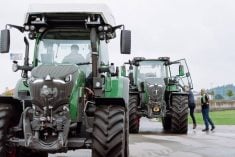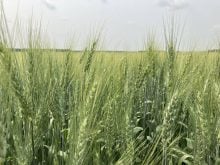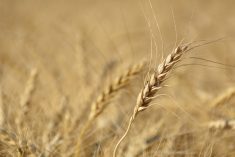BROOKS, Alta. – Seed grower Karl Slomp can see both sides of the debate over genetically modified alfalfa.
“We need some biotech,” said the Brooks area farmer, who sees it as a way to make alfalfa competitive with corn.
“It would be the first perennial crop resistant to Roundup.”
However, he also recognizes that traces of GM seeds could be as ruinous for alfalfa producers as they were for flax growers when they lost business in Europe because of GM contamination.
Read Also

Gap in emission regulations hamstrings Canadian hybrid truck manufacturer
A B.C. company building hybrid engines for heavy trucks says they have the opportunity to build something leading edge in Canada, but our own laws are stopping them from doing it.
The United States Department of Agriculture approved Monsanto’s genetically modified Roundup Ready alfalfa for commercial sale in June 2005. The Canadian Food Inspection Agency also approved the crop.
However, it was taken off the market after a coalition of groups successfully took the USDA to court, saying an environmental impact assessment was needed. The USDA has found no safety concerns with the product and an appeal against the ban is due to take place later this year.
Cal-West Seeds, a California co-operative that breeds alfalfa and exports seed, is also active in biotech research.
Representative Paul Fry said the company recognizes the hazards.
“The export market for alfalfa seed is an important economic situation and we have got to pay attention to it,” he told the Alfalfa Seed Commission’s annual meeting in Brooks March 16.
“That segment of the market is at risk if GMO is not handled correctly.”
He said a large percentage of U.S.-grown alfalfa seed is exported, and it’s importers rather than exporters who set the regulations and specifications. Customers may reject the shipment or sue if they do not get what they want, he added.
“If you don’t get these right, you don’t have a Plan B.”
His company has found low levels of glyphosate resistant alfalfa in foundation fields, even though no nearby farms were growing it in that part of California.
The company has since discovered low levels of GM alfalfa in other fields.
Traces of GM material don’t bother some customers, while others, such as Saudi Arabia and Europe, reject it when levels are less than half a percent.
Fry said American growers who cannot meet the specifications will lose markets to other competitors such as Canada and Australia.
U.S. alfalfa seed production for the domestic market is slipping, but exports are growing. The United States grew 40 million pounds for domestic use in 2008 and 45 million lb. for exports. Saudi Arabia was by far the best customer, taking nearly 40 percent of the market share. Fry said it will not buy GM alfalfa.
The next best customer is Mexico at 22 percent. It accepts GM product.
Argentina takes 12 percent of the export product and Canada buys eight percent. The rest is spread among 60 other countries with varying levels of GMO acceptance.
Canada also exports 25 million lb., mostly to the U.S., and a lesser amount to Europe.
Fry said USDA officials see their role as looking for pests and do not consider GMOs part of their jurisdiction. Instead, government is depending on the industry to identify the issues and implement solutions.
Grower options include tighter mandatory control of isolated seed fields. A field should be free of alfalfa for four years with no GMOs within eight kilometres to ensure seed produced is free of banned substances.
Canadians importing seed do not ask for a GMO test, he said, but it should be standard protocol for future protection. Test strips are available to check seeds but they may produce false positives, so Fry recommended sending samples to a certified laboratory.
The GMO issue is likely to come up at the International Seed Association meeting to be held in Calgary at the end of May.
Fry said the best case scenario is to persuade countries to accept a low level of GM material because zero tolerance is unrealistic.















